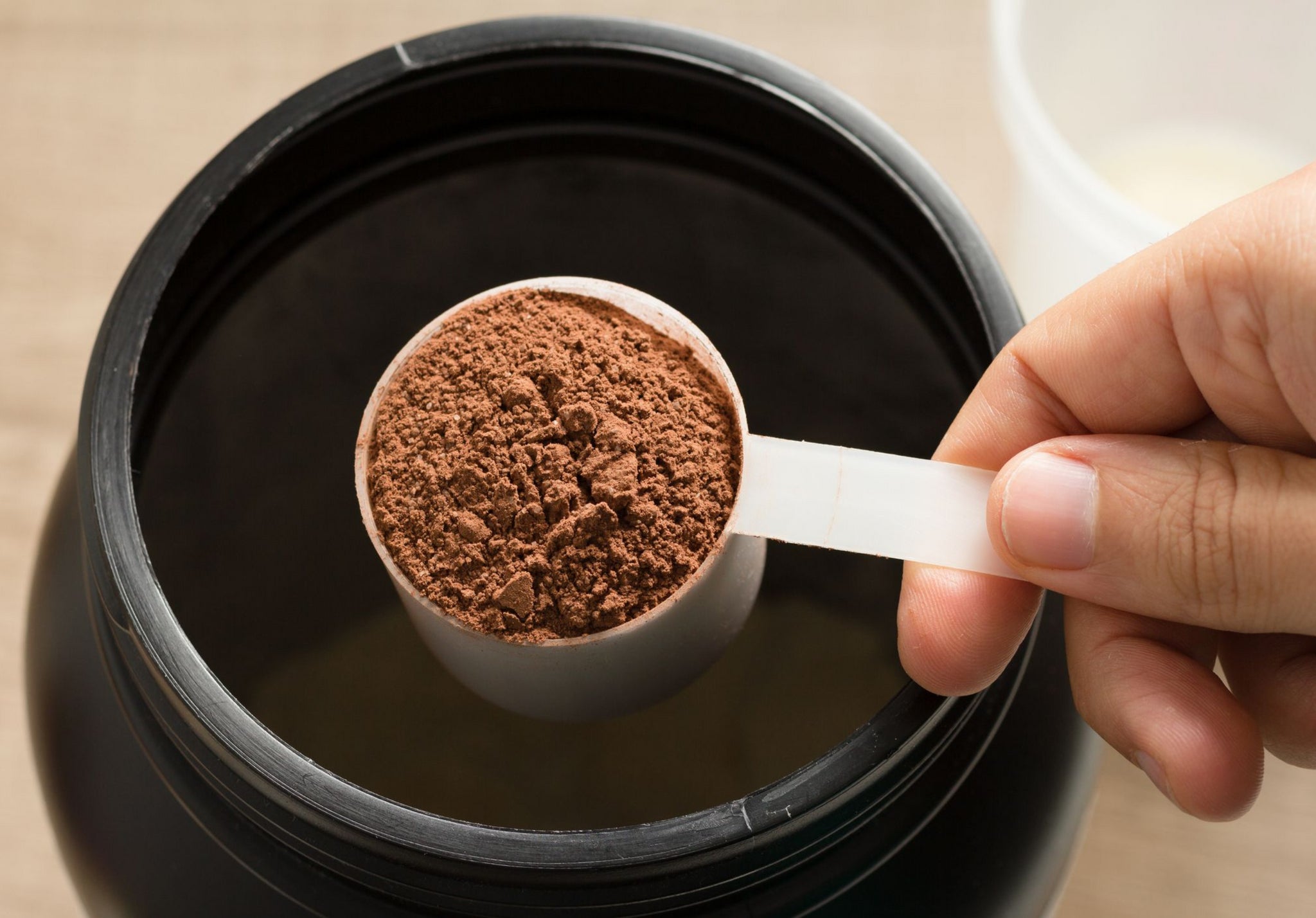
Protein powders have been, and continue to be, a staple in every gym users supplement stack and it’s easy to see why. As a quick and efficient source of protein, it’s much easier (and tastier!) to make up a protein shake post workout to get a delivery of clean, high quality protein rather than racing home after a hard session to cook some chicken breast.
As the supplement industry grows larger, so does the range and type of products and protein powders are not immune to this rapid evolution. Every brand and manufacturer will make the claim about their product being the greatest but what this article will set out to do is remove the marketing claims, flashy logos and explain in simple terms what to look for in your protein powder.
WHEY PROTEIN
Whey protein is by far the most popular of all the protein powders available. Whey protein is derived from cows milk and is a by-product of the cheese making process. In its powder form, it’s one of the most popular sports nutrition products in the world because of its availability, cost and effectiveness. Once consumed whey is rapidly digested and absorbed by your digestive system so it gets into your bloodstream and then your muscles very quickly, which is beneficial after training when you need to initiate the recovery process. Whey comes in three forms, all of which are abundant in branched-chain amino acids (BCAAs), the crucial elements in rebuilding and repairing the muscular damage caused by working out.
Whey Protein Concentrate (WPC) – Most cost effective form of whey therefor the most widely used.
Whey Protein Isolate (WPI) – Leaner than WPC, loses most of the lactose so safer to use for anyone who has a mild lactose intolerance
Whey Protein Hydrolysate (WPH) – Easy for digestion and the fastest absorbing forming of whey as it has already undergone partial hydrolysis.
While readily available separately, the more common protein powders will be a blend of the 2 or 3 forms together. The blend with the greater amount of WPC will have a few more calories and carbohydrates per serve over the blends with the greater amount of WPI or WPH. All these blends are fine for post workout but if you are looking for the fastest absorption you should definitely go for a WPI or WPH.
We recommend OPTIMUM NUTRITION Gold Standard 100% Whey.
CASEIN PROTEIN
Casein protein is also derived from cows milk and is a by-product of the cheese making process. Casein protein, unlike whey protein, is a slow releasing protein and not often used for post workout. Casein protein powder will help you accomplish both goals of having a higher calcium intake as well as boosting your protein intake, allowing you to maximise your fat loss benefits. Another very important benefit of casein protein powder is that it helps promote colon health. The best time to use casein protein is when your body is going to go a long time without nutrition so either before a long shift at work or before bed.
We recommend RULE 1 Casein.
PLANT/VEGAN PROTEIN
The need and want for more natural protein powders has been growing and with the spike in gluten and lactose intolerance's in the modern day diet, there has been a rise in plant based protein powders. The main source of protein in these are Pea, Brown Rice, Sacha Inchi and Hemp but some will also have lesser used protein sources such a peanuts. Vegan protein powder has the added benefit of containing moderate to high amounts of fibre which can help to promote a healthy bowel, lower cholesterol levels and can help to maintain a healthy body weight. A big, but often overlooked, benefit for choosing plant-based protein over animal protein is the positive effect it has on the environment.While most plant/vegan protein will be naturally flavoured, if you are looking for the cleanest delivery you can get unflavoured ones which are perfect for smoothies, superfood bowls and cooking.
We recommend ON PRANA Power Plant Protein.
COLLAGEN PROTEIN
Collagen is the most abundant protein in the human body. While our body’s natural produce collagen, this production does slow down as we get older. Collagen protein is linked to the health of hair, skin, nails and joints so if you’re experiencing issues with any of these a collagen protein supplement may just be the one for you. Plus, collagen also contains a concentrated amount of glycine, an amino acid involved in the synthesis of creatine. This can provide muscles with the fuel needed to power through your workout. Besides keeping your skin healthy and glowing, collagen may also help improve the appearance of stubborn cellulite. Collagen is in the gut’s connective tissue and can help support and strengthen the protective lining of your digestive tract. This is critically important because alterations in the barrier function of your intestine, also known as leaky gut syndrome, can allow particles to pass into the bloodstream. This may result in inflammation. Collagen protein powders are generally manufactured from bovine hide. No dairy, no fats, no carbs, no sugars just clean and highly bio available protein.
We recommend CYBORG SPORT Collagen Pro.
Disclaimer: The above article is merely a guide and is in no way a recommendation or a treatment protocol for any health conditions or diseases. You should always consult with a qualified health care provider before changing your supplement, training or nutritional strategy. Supplementation should not be attempted by pregnant or breastfeeding women, anyone on prescription medication or children under the age of 15 unless advised by your qualified health care provider.




